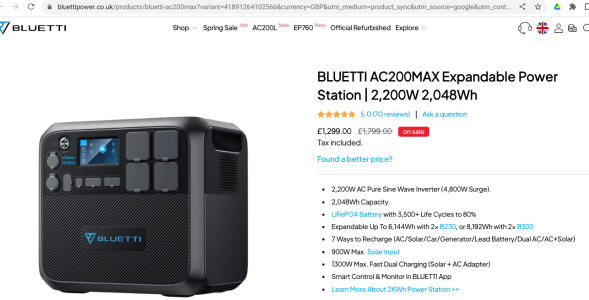BlueJasper
Active member
Hi, I've got 400watts of solar fitted so plenty of power when on a bouy for several days, but hot water is the issue.....
I have an inverter to power the immersion, so the question is do I replace the house batteries for lithium and add a dc to dc charger or just buy a Honda cassette generator.
Realistically this for 2 or 3 big trips each year but I'll be retiring next year, so that will increase.
I favour lithium, but that brings its own problems and a portable gennie keeps it simple.
Any thoughts on this?
Cheers.
I have an inverter to power the immersion, so the question is do I replace the house batteries for lithium and add a dc to dc charger or just buy a Honda cassette generator.
Realistically this for 2 or 3 big trips each year but I'll be retiring next year, so that will increase.
I favour lithium, but that brings its own problems and a portable gennie keeps it simple.
Any thoughts on this?
Cheers.

